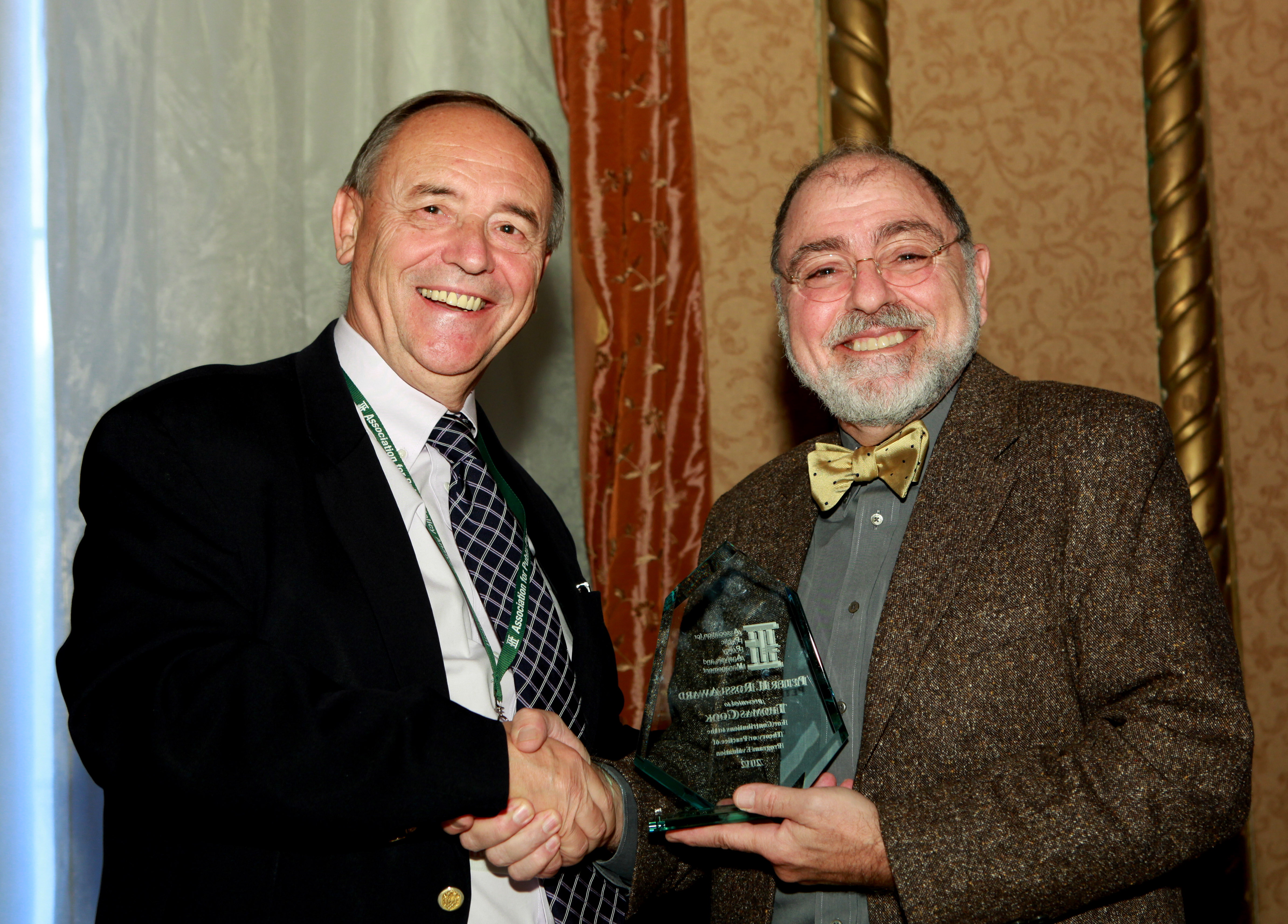Return to the Rossi Award page.
We are delighted to announce that Thomas Cook of Northwestern University has been selected to receive the 2012 Peter H. Rossi Award for Contributions to the Theory or Practice of Program Evaluation. (To read his acceptance remarks, please click here.)
Thomas Cook is a Professor of Sociology, Psychology, Education and Social Policy at Northwestern University and a faculty fellow at the Institute for Policy Research. Cook�s primary field of research is the methodology of program evaluation, in particular, field experimentation and quasi-experimentation. He coauthored some of the most important books in the field of program evaluation: Quasi-Experimentation: Design & Analysis Issues for Field Settings (1979, with Donald Campbell); Foundations of Program Evaluation: Theories of Practice (1991, with William Shadish and Laura Leviton); and Experimental and Quasi-Experimental Designs for Generalized Causal Inference (2002, with Campbell and Shadish). They are required reading for graduate students across the social sciences.

|
Cook has written or edited ten books and authored numerous book chapters and articles. His research has almost 30,000 citations and has been published in such journals as the Journal of Policy Analysis and Management, the Journal of Econometrics, the Annual Review of Psychology, the American Educational Research Journal, and the Journal of Educational and Behavioral Statistics.
Cook�s early work outlined the threats to validity in field settings and how to deal with them, including groundbreaking work on causal generalization (�external validity�). More recently, he has directed his research on within-study comparisons designed to reduce bias in nonexperimental methods.
Cook �is not content to sit in the ivory tower writing about theories of methods and evaluation,� one nominator commented. Much of his work relates to school reform and adolescent development. Cook has collaborated on evaluations of Sesame Street, Comer�s School Development Program in Chicago, and pre-kindergarten programs. Cook�s expertise and leadership are evident in his role on a congressionally-appointed committee tasked with determining the impact on student achievement of No Child Left Behind. Currently, Cook chairs the MacArthur Research Network on How Housing Matters for Children and Families.
Past honors include the Myrdal Prize for Science from the American Evaluation Association (1982), the Donald T. Campbell Prize for Innovative Methodology from the Policy Sciences Organization (1988), the Distinguished Research Scholar Prize from the American Psychological Association (1997), and the Paul B. Sells Award for Lifetime Achievement from the Society of Multivariate Experimental Psychology (2008). In addition, he was named the Margaret Mead Fellow of the American Academy of Political and Social Science in 2002 and a fellow of the American Academy of Arts and Sciences in 2000.
One nominator praised Cook as a �model of the �trans-disciplinary� researcher who draws widely from many areas to use the best of what exists in the way of methodological and theoretical ideas� and as an enthusiastic �teacher, mentor and advisor to several generations of evaluation researchers.�
Two other nominators wrote: �One of the most striking things about reading Tom�s substantive evaluation work is that he rarely chooses questions that can be answered by a straightforward randomized control trial or a regression-discontinuity design. Instead, he chooses difficult and important substantive questions that he examines with often imperfect research designs . . . motivated by his social conscience and a genuine desire to know what programs and policies can improve the lives of children and their families. He takes on these studies because he believes that with good theory and methods, science can have a role in ameliorating some of our most trenchant social problems.�
Back to top



















